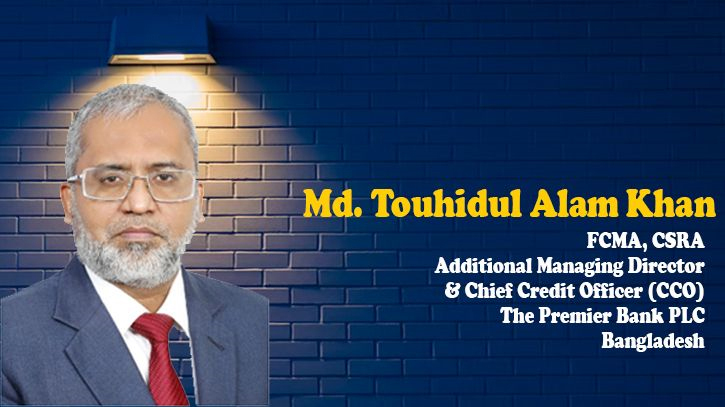
Photo: Messenger
The article underscores the pressing need for incorporating Islamic banking into the academic landscape of Bangladesh. It emphasises how higher education institutions can act as catalysts for the growth of the nation's Islamic banking and finance sectors, which have shown remarkable expansion in recent years.
Bangladesh is now home to ten full-fledged Islamic banks, accompanied by various branches and Islamic banking windows within conventional banks. According to data from Bangladesh Bank, the Islamic banking sector contributes significantly, making up 29.20% of total banking industry loans and advances and accounting for 25.81% of all banking sector deposits. This impressive performance is not unique to Bangladesh, as Islamic banking has experienced substantial growth in more than 76 countries globally, including economies where Muslims are a minority.
However, a significant challenge plagues the Islamic banking industry, which the article underscores – it currently operates on a supply-driven model. In this model, banks offer various Islamic financial products, while many customers remain focused solely on obtaining financial assistance, often without comprehending the underlying principles. To ensure the long-term success of Islamic banking, a transition to a demand-driven approach is essential, one that emphasises educating customers and fostering an understanding of the principles underpinning Islamic finance.
The international recognition of the Islamic banking system by the International Monetary Fund (IMF) as well as its endorsement of core principles for Islamic finance regulation highlight the industry's global importance. Forecasts from a report suggest that Islamic banking assets will reach an impressive $4.03 trillion by 2026. These recognitions, both on the domestic and international fronts, emphasise the growth potential of the industry and the need for a robust educational framework to support it.
The article succinctly outlines the challenges confronting the Islamic banking industry, which include a shortage of high-quality human resources, insufficient policy support, and negative public perceptions. To surmount these challenges, universities must take a leading role. They can develop standardised curricula that provide quality resources while educating potential customers about Islamic banking and finance. Moreover, the advanced research carried out by universities can lead to the creation of new products that respond to contemporary customer demands, thereby promoting the sector's growth.
In the long run, universities can produce skilled professionals who can effectively apply Shariah principles in economic transactions, advancing the industry. Additionally, these well-educated individuals can become future government policymakers, leveraging their academic background to support the sector.
One of the most significant advantages of incorporating Islamic banking education into universities is its potential to promote the industry and generate demand-driven sales opportunities. Each student, faculty member, and researcher can act as a proactive advocate for the sector, influencing public opinion and stimulating interest in Islamic banking products. The increase in the number of business graduates specialising in Islamic banking will foster a more positive attitude towards the sector. Some of these graduates may even become entrepreneurs or pursue careers outside the financial sector, thereby expanding the industry's potential customer base.
To address the educational gap, Bangladesh can look to the examples set by countries such as Malaysia, the United Arab Emirates, Bahrain, and Egypt, which have established robust Islamic banking and finance education systems. Collaboration between academics, industry practitioners, and regulators can lead to a contemporary curriculum. Initially, universities can offer introductory courses and subsequently expand to provide undergraduate, graduate, and Ph.D. programmes in Islamic banking and finance.
Financial institutions should take an active role in encouraging universities to establish Islamic financial education programmes, while Bangladesh Bank can play a pivotal role in advocating a comprehensive educational approach. Additionally, the possibility of forming partnerships with foreign universities to establish branches in Bangladesh for Islamic banking and finance programmes can be explored.
In conclusion, incorporating Islamic banking education into university curricula is essential for educating and empowering the next generation of finance professionals. This initiative ensures a level playing field for demand-driven Islamic financial products and contributes to the growth and global recognition of Islamic banking in Bangladesh. By addressing the education gap and fostering a strong educational foundation, Bangladesh can capitalise on its strengths and play a leading role in the expansion of the global Islamic banking and finance industry.
The writer is the additional managing director and chief credit officer of The Premier Bank PLC. He is a fellow member of the Institute of Cost & Management Accountants of Bangladesh (ICMAB) and the first Certified Sustainability Reporting Assurer (CSRA) in Bangladesh. He is also a post-graduate diploma from the Institute of Islamic Banking & Insurance (IIBI), United Kingdom.
Messenger/Sun Yath








